India uses cluster munitions on civilians along LoC
Pakistan condemns int'l law violation; experts say New Delhi using cluster weapons to instill fear among Kashmiris
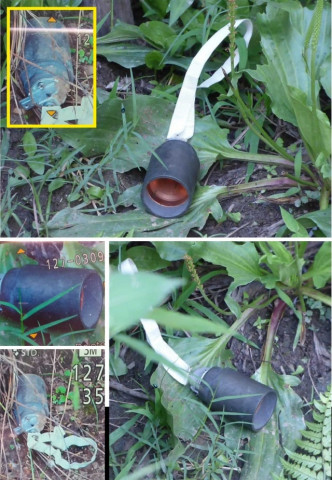
Images of the cluster munitions used by Indian forces on civilian population along LoC. PHOTO: ISPR
"Indian army on the night of 30th/31ist July targeted innocent citizens, including women and children, in Neelum Valley through artillery using cluster ammunition," read a statement issued by the Inter-Services Public Relations. "Resultantly, two civilians, including a four-year-old boy, were martyred while 11 got critically injured."
The Pakistan military's media wing pointed out that because of their severe impact on non-combatants, the use of cluster munitions is prohibited under the Convention on Cluster Munitions. "This blatant Indian aggression against all international norms exposes true character of Indian army and their moral standing," it said.
"It's time for international community to take notice of this Indian blatant violation of international laws on use of cluster ammunition targeting innocent citizens," the statement added.
Pakistan's Foreign Office Spokesperson Dr Muhammad Faisal also condemned the use of cluster munitions along the LoC and deliberate targeting of civilians by India. In a tweet, he termed it a blatant violation of the Convention on Cluster Munitions and international humanitarian laws.
"The international community should take notice of the Indian actions which are violation of international laws," he urged.
According to figures, India has committed 1,876 ceasefire violations so far this year, martyring 19 civilians and injuring at least 148 more. Six civilians have been martyred in Indian aggression over the last two weeks alone.
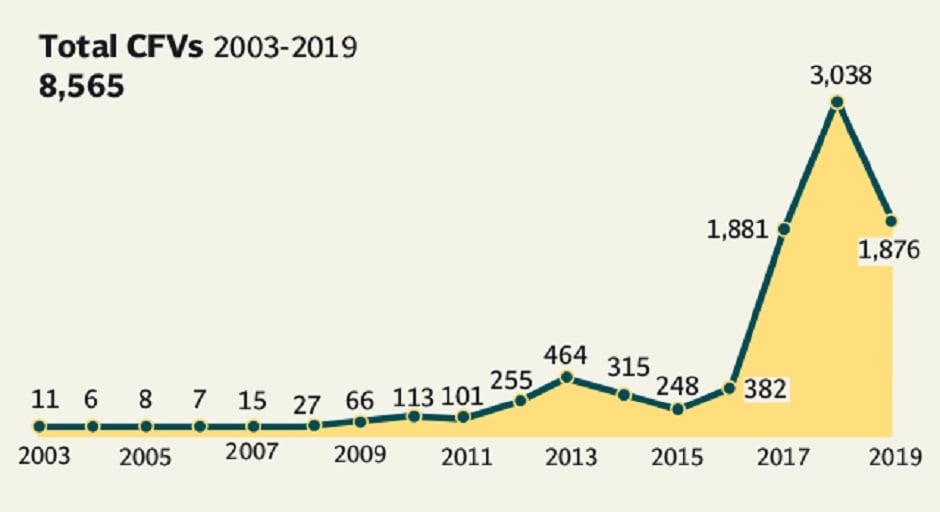
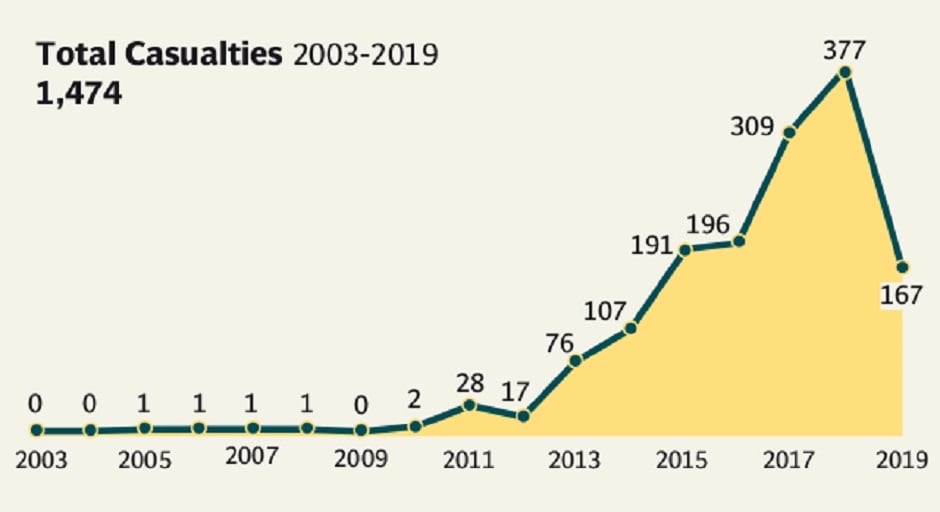
DESIGN: IBRAHIM YAHYA
Indiscriminate destruction
Cluster munitions are explosive weapons that eject and disperse several smaller sub-munitions or bomblets. The weapons, according to former military officers and defence analysts, are designed to kill personnel and destroy vehicles over a large area.
"Basically, cluster munitions are used in an anti-personnel role," said Maj Gen (retd) Inamul Haq. "They are used to eliminate enemy forces over a certain area instead of destroying single structures."
Because of this anti-personnel role, Inam characterised cluster munitions as immensely cruel weapons. "The use of cluster munitions is governed by certain United Nations protocols that their signatories respect," he pointed out. "This means that these weapons are generally avoided and used only after certain preconditions are met."
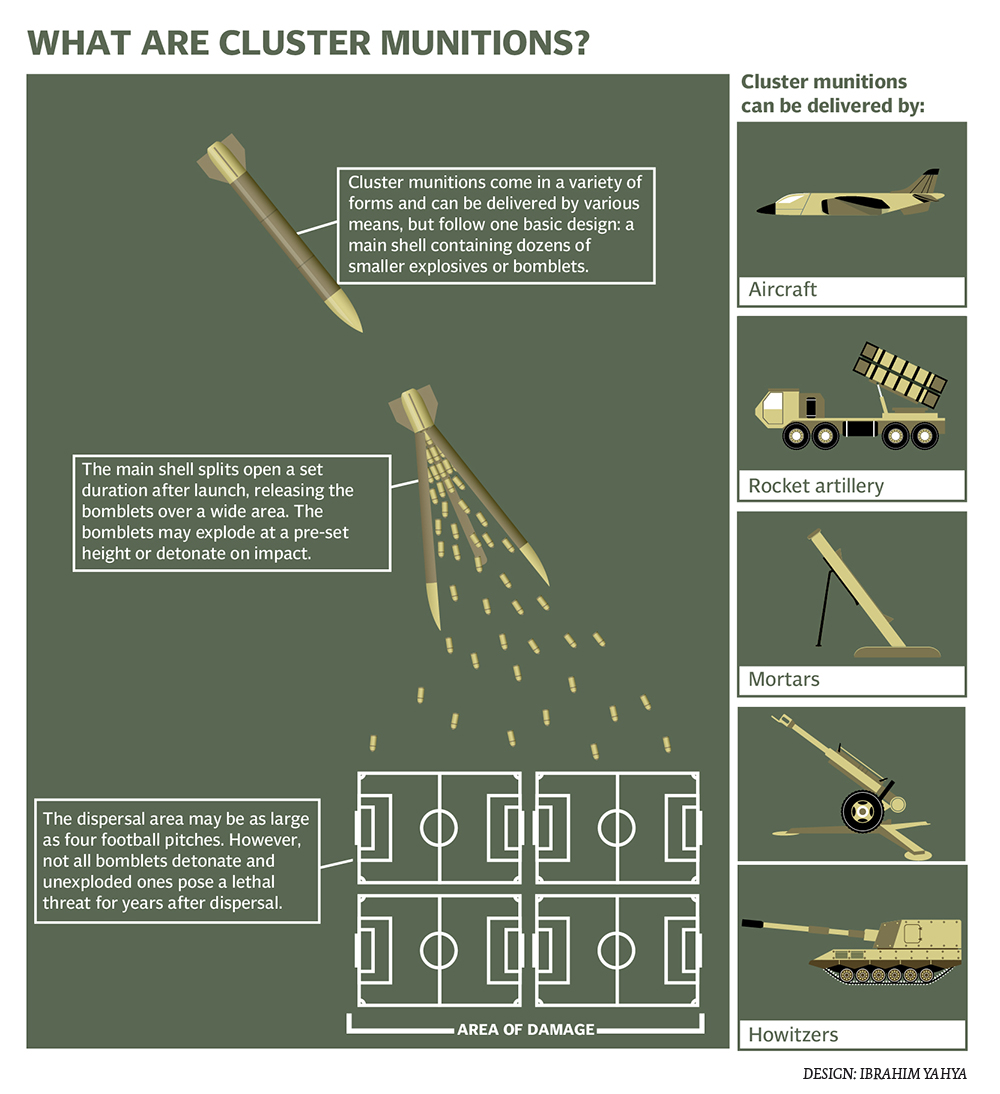
"In particular, I would like to emphasise that there can be no justification for their use on civilians," he stressed. "That India is targeting innocent civilians with cluster munitions is morally reprehensible and a violation of both the rules of war and basic human rights."
Defence analyst Imtiaz Gul agreed. "The use of any kind of force against innocent unarmed civilians is a huge transgression. It is completely abhorrent, both legally and morally," he said. "But to use cluster munitions on areas with a civilian population is even more criminal."
"Cluster munitions cause much greater damage than regular ordnance," Gul explained. "They have the potential to kill more, to maim more, and they have the capability to remain a hazard longer. As such, their destructive effect is longer lasting."
This residual threat that cluster munitions leave behind was witnessed in Afghanistan, Inam said. "The Soviets made heavy use of these weapons when they invaded Afghanistan. Children in particular were vulnerable to cluster munitions remnants as they mistook them for toys."

Both Inam and Gul agreed that India's motive in using these weapons is to terrorise civilians along the LoC. "Because of the scale of devastation they cause, cluster munitions have an immense psychological effect. Indian forces are employing these as a terror weapon," said Inam.
"Indian troops want to intimidate and scare Kashmiris. It is a display of their intent to use force indiscriminately, in disregard for all international humanitarian conventions," added Gul. "Pakistan must present proof of India's use of these weapons before the international community."
Defence analyst Lt-Gen (retd) Talat Masood pointed out that Indian forces may be using these weapons to create mini-minefields along the LoC. He agreed with Inam and Gul that India's use of these 'fear creating' weapons on civilians is 'criminal'.

Both Inam and Masood viewed the uptick in aggression along the LoC through the lens of recent developments involving the US and Afghanistan.
For Inam, the surge in ceasefire violations was partly driven by New Delhi's desire to cripple the freedom struggle in Indian Occupied Kashmir before a deal between the US and Taliban in Afghanistan materialises. "Possibly, India's leadership fears that the Afghan manpower currently engaged in struggle against US forces may divert its attention to Kashmir if such a deal is struck," he said.
"But also, in my opinion, it seems to be a part of their agenda to alter the demographics of IOK," he added. "We know New Delhi has tried to resettle people from elsewhere in India in Jammu and the Kashmir Valley by offering them various incentives. Recently, there have also been reports that they want to take away IOK's special status and make Jammu a separate state."
Masood, meanwhile, suggested that it was a possible attempt on the part of Narendra Modi's government to divert attention from US President Donald Trump's claim that the former had sought his mediation on Kashmir.
"There is a lot of pressure on Modi to deny the mediation request Trump claimed he made. Interestingly though, he has not contradicted the US president yet," he said. "At the same time, Modi may be trying to pacify political opposition because Trump's statement has definitely raised the profile of the Kashmir dispute."
Price paid in blood
Civilians have paid dearly for the inaccuracy and unreliability of cluster munitions ever since they were first used in the 1940s. Thousands of civilians have lost their lives to or have been maimed by these weapons in in war-torn areas across Asia, Europe and the Middle East.
The International Committee of the Red Cross (ICRC) has expressed its deep concern about cluster munitions for many years and in 2000, called on states to stop using them and urgently negotiate a legally binding instrument to address the widespread human suffering they caused.
Following the 2006 Lebanon War, which provided further momentum to the push against cluster munitions, Norway organised the Oslo Process in early 2007. The process culminated in the Convention on Cluster Munitions, which was adopted a year later in May 2008.



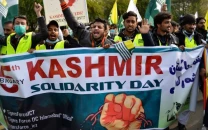

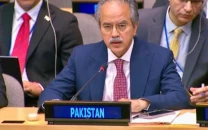













COMMENTS
Comments are moderated and generally will be posted if they are on-topic and not abusive.
For more information, please see our Comments FAQ